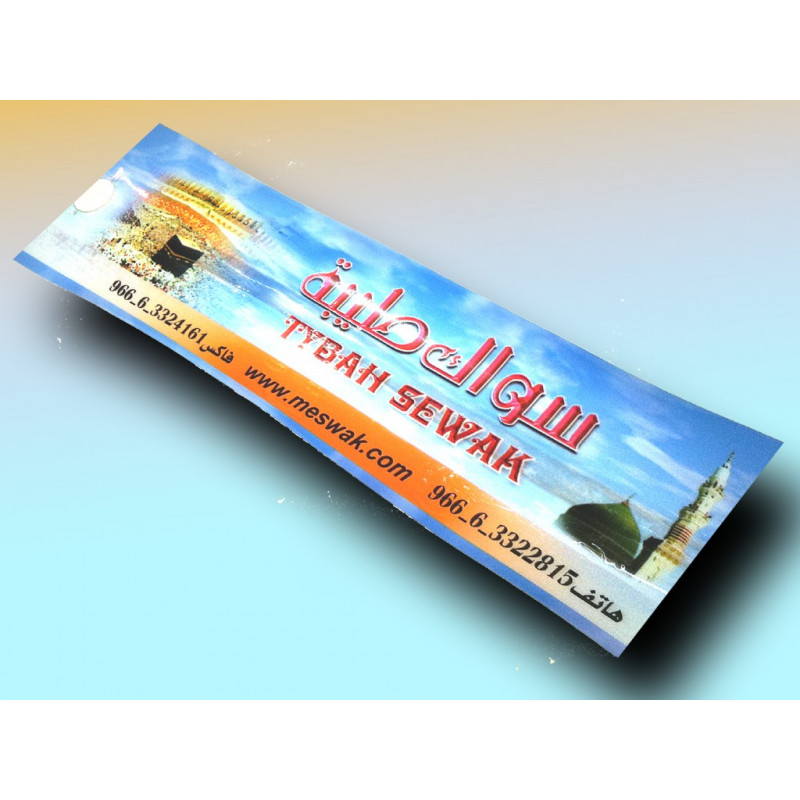



Promotions SANA: Jusqu’à -20%, Cliquez ici
Promotions SANA: Jusqu’à -20%, Cliquez ici
Siwak Tybah - natural taste - natural toothbrush
or مسواك), also called souek, souak, miswak or “araq wood (arak stick)”, is the root of the Salvadora persica shrub used as a natural toothbrush.
The Sewak - Siwak or Miswak is a cinnamon colored stick. It has been used for the care of teeth and for oral hygiene for a long time. Sewak - Siwak or Miswak is known as it was in the Middle East and Asia in ancient times, it was used to brush and clean the teeth due to its high content of antiseptic agents and gum calmants. The best Sewak - Siwak or Miswak is the one made from the arak tree (Salvadora Pérsica) from which our toothpaste was made. The Prophet Muhammad salla Allâhu^alayhi wa salâm recovered the tradition of oral hygiene as the standard of hygiene for all the Islamic people because apart from its antiseptic agents it also contains other substances that promote digestion. Even on his deathbed he asked his wife Aisha to prepare Sewak - Siwak or Miswak for him, because the Islamic people are obliged to prepare the body for prayer, or wudu. In this case it was the last prayer of the beloved prophet. This rule became a sunna and almost a liturgical element. In ancient times the fact of chewing certain roots was proper to civilized peoples because these roots were also used as a toothbrush and became its origin.
Already in Antiquity we began to practice oral hygiene using fibrous chewing sticks, such as the siwak, serving as a toothbrush. The stick contains cleaners, disinfectants and even fluorides. It is recommended in the collection of medical knowledge of the surgeon Sushruta in ancient India (approx. 500 BC). The latter is also known as a pioneer of anesthesia, which he practices in particular with Indian hemp1. The siwak is also mentioned in the ancient Indian book of the laws of Manu (Sanskrit: मनुस्मृति, manusmṛti) around the Christian era. In the Islamic world, Muhammad would have used it regularly, according to the literature of Hadîth2. The use of this plant for cleaning teeth predates the appearance of Islam; it developed following the positive opinion of the prophet Mahomet.
The simple fact of rubbing your teeth with a fibrous object such as the siwak helps get rid of dental plaque. Scientific research suggests a beneficial effect in strengthening the gingiva3. A US study conducted in 2003 by the National Center for Biotechnology Information concluded that using a siwak is more effective than using a toothbrush4,5. The World Health Organization recommended its use in 1986 and then in 20006. It also contains a substance that facilitates digestion and protects the teeth against tartar3,5.
There is a lot of research on neem, whose shrub branches show similar properties to siwak.
No customer reviews for the moment.